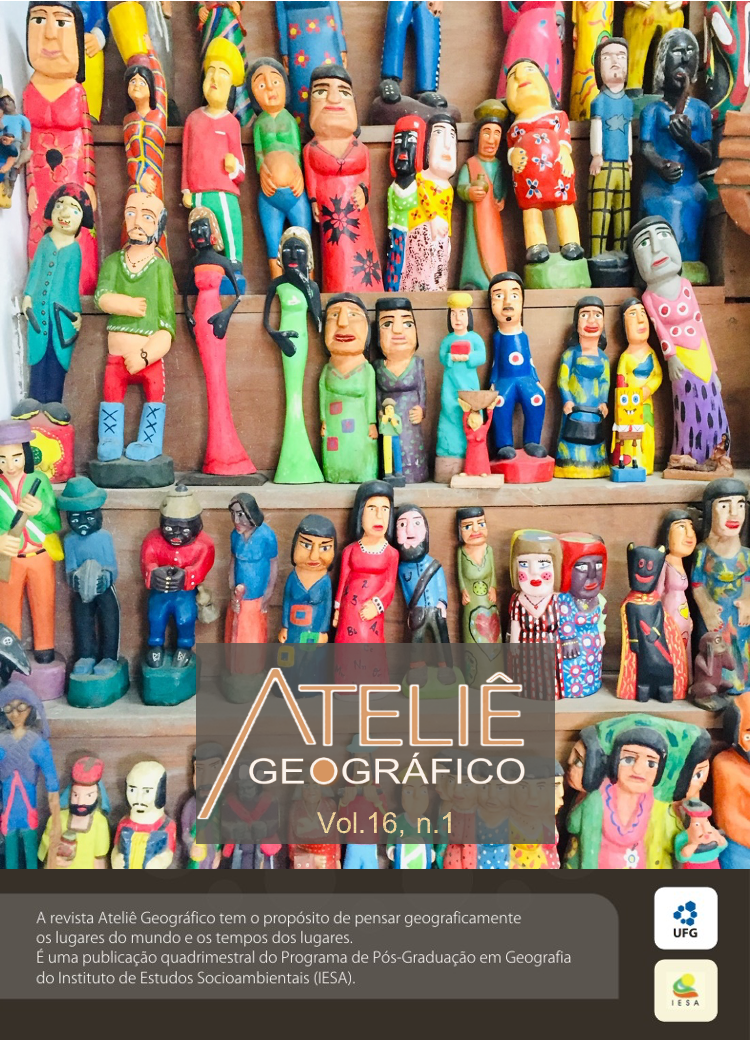Environmental perception and space legibility: a study in the university context
DOI:
https://doi.org/10.5216/ag.v16i1.70386Abstract
The disorderly production of urban space generates negative consequences on the well-being and quality of life of the inhabitants, promoting environmental damage that can be irreversible. The article aims to analyze the environmental perception in the university environment and understand how the space's legibility helps in the environmental perception. It is an applied and exploratory research, using fieldwork with a qualitative approach; data were obtained through interviews and participant observation. Respondents were divided into three classes: student, teacher and employee. They were asked about the meaning of the Campus, distinctive elements of the place, indications of the most common route taken by the interviewees and justifications for the indications of the distinctive elements. Positive definitions prevailed in the classifications about the meaning of the Campus, being: broad and afforestation/trees, mentioned by 25% of the interviewees. The results obtained indicate that mental maps were important and effective instruments to identify the construction of spatial knowledge and readability by students, teachers and servers on the campus.
Keywords: Landscape. Urban space. University. Green areas.
Downloads
Downloads
Published
How to Cite
Issue
Section
License
Autores que publicam nesta revista concordam com os seguintes termos:- Autores mantém os direitos autorais e concedem à revista o direito de primeira publicação, com o trabalho simultaneamente licenciado sob a Licença Creative Commons Attribution que permite o compartilhamento do trabalho com reconhecimento da autoria e publicação inicial nesta revista.
- Os autores não serão remunerados pela publicação de trabalhos na Revista Ateliê Geográfico. Além disso, os conteúdos publicados são de inteira e exclusiva responsabilidade de seus autores, ainda que reservado aos editores o direito de proceder a ajustes textuais e de adequação às normas da publicação.
- Autores têm permissão e são estimulados a divulgar seu trabalho online (ex.: em repositórios institucionais ou na sua página pessoal), já que isso pode gerar alterações produtivas, bem como aumentar o impacto e a citação do trabalho publicado (Veja O Efeito do Acesso Livre).


